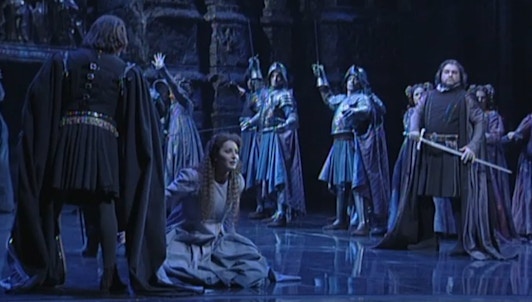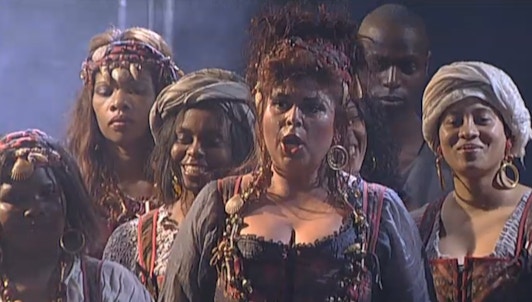Verdi had to struggle to establish his fame, he became nonetheless the most influential operatic composer of his generation. Mastering both historical frescos (Aida, Il Trovatore, Don Carlo and Un Ballo in maschera) and social depiction of his contemporaries, Verdi combined entrancing melodies with acute psychological depiction of the characters. Inspired as well by Shakespear’s dramatic genius, Verdi drew his inspiration from the Bard of Avon on three occasions. With Macbeth, Otello and Falstaff, he explored musically the depth of human avidity or, at the opposite, the joyfulness suited for opera buffa.
Romantic composer par excellence, Verdi was also an emblematic figure of the Italian Risorgimento, a political movement lead by Cavour and Garibaldi claiming for the unification of Italy. The insurrection picked up some of his compositions, which became true hymns to freedom: Patria oppressa especially, from Macbeth, served as a rallying song. The insurgents perceived in this choral piece a parallel between the contemporary Austrian dominion and the usurpation of power by a criminal king. Verdi is strongly associated with the political turmoil of his time, but not only for musical reason. His very name, VERDI, standing for Vittorio Emanuele Re d’Italia (Victor Emmanuel King of Italy), was a revolutionary graffiti which challenged the authority of the ultramontane occupying forces.
If Verdi’s importance in the political events that occurred in the second half of the 19th century in Italy has nowadays a historical interest only, his operas are timeless and invite, today as in the past, to an outstanding artistic experience. medici.tv has selected a few classical productions (Aida by Jose Antonio Gutierrez, Macbeth by Luca Ronconi, …) which put to the fore the genius of the Italian maestro.
Read more

